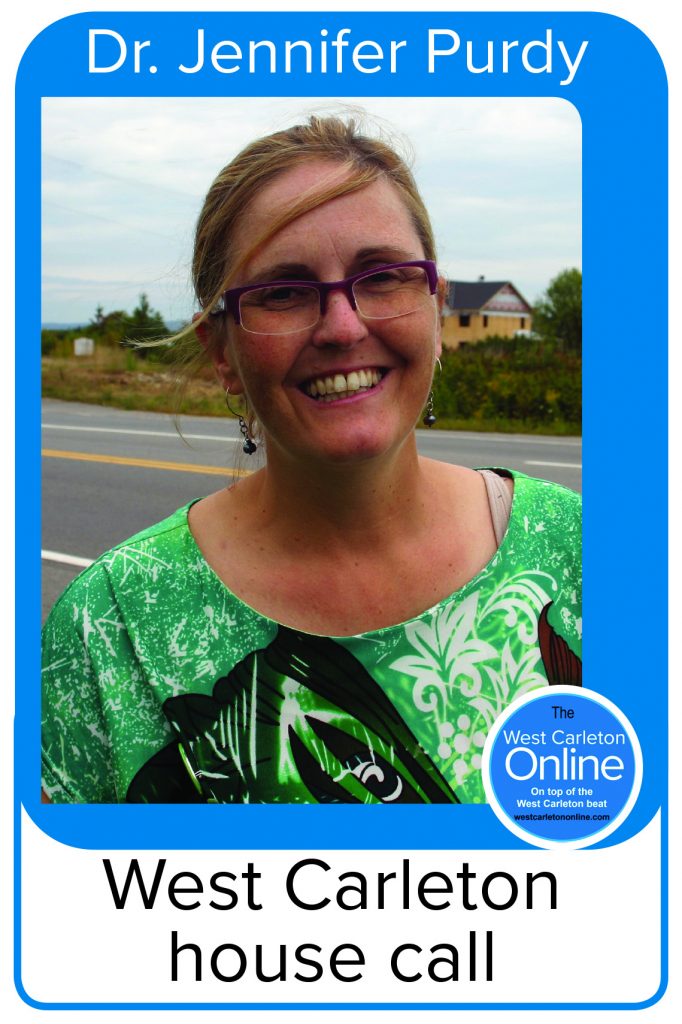Dr. Purdy: Lifestyle and your immune system in the age of COVID-19
Dunrobin resident Dr. Jennifer Purdy is a retired member of the Canadian Armed Forces who is a doctor with her own practice in Kanata, Ottawa Lifestyle Medicine. She also was the Kanata-Carleton Riding Green Party candidate in the last federal election. She is providing this column in reference to some steps you can take to better protect yourself during the COVID-19 pandemic.
By now, we should all be experts in physical distancing, hand-washing frequently and avoiding touching our face. It has been a few weeks since our lives changed significantly due to the current COVID-19 pandemic. We are hearing in the news COVID-19 can impact people more significantly if they have chronic diseases such as respiratory conditions or hypertension. As we adjust to these new circumstances, some may wonder: is there anything else we can do to protect ourselves?

Obviously, there is no evidence regarding the effect of sleep deprivation, exercise, fruit and vegetable intake, etc., on a person’s susceptibility to COVID-19. However, studies have been done demonstrating the impact these may have on a person’s immune system. Optimizing our lifestyle during this current challenge may help us, and for those of us with a chronic disease(s), any improvements to our health may help us should we become infected with COVID-19.
Sleep has many benefits both known and unknown, but it also seems to have an impact on our immune system. In one study, two groups of people, one sleep-deprived and one not, had their nostrils infected with a cold virus. Those who were sleep-deprived were much more likely to become symptomatic with a cold.
Exercise is interesting, in that too much has been proven to have a negative effect on our immune system. However, mild to moderate and regular exercise appears to be protective. So, while being careful to physically distance yourself, take a walk, jog, or bicycle ride or exercise within your home.
Substance use, such as smoking, drinking, and other drugs, is clearly harmful to our health. There is some evidence suggesting alcohol’s negative impact on the immune system. It also increases the risk of a variety of cancers including breast cancer. Smoking, whether it’s cannabis or nicotine, causes inflammation, which is not a good thing in this COVID-19 era. Cutting down or quitting is a great idea, especially at this time.
This is a stressful time for many of us for a variety of reasons. Some of the ways to combat stress are exercise, diet, being cautious about substance use, and socially engaging while physically distancing or using technology. Other excellent ways to manage stress include relaxation breathing, meditation and mindfulness, and while one can do these for 20 to 30 minutes or more, there is benefit to be had even with a couple of minutes. It all helps!
Many Canadians are not eating enough fruit and vegetables, and in addition to having a demonstrated impact on our physical and even mental health, there is evidence fruit and vegetables play a role in our immune system. In a study in Ireland, one group was told to consume their normal amount of produce, which was less than two servings a day. The other group was told to increase to five servings daily; however, they did not, and ended up eating less than five servings. Nonetheless, six weeks later, after both groups were given a pneumonia vaccine, the group that had more fruit and vegetables had a significantly better antibody response to the vaccine. Unless one has a food allergy, fruit and vegetables have no negative side effects, so enjoy them. This time of year, most are not available locally so frozen will be just as, if not more nutritious than fresh. Canned fruits and vegetables are excellent options too.
In conclusion, please continue to follow Ottawa Public Health’s recommendations including physical distancing and hand washing. Lifestyle factors, including diet, physical activity, sleep, reduction of any harmful substance use, and stress management are much more important than we may think in helping us to protect the health we have.



